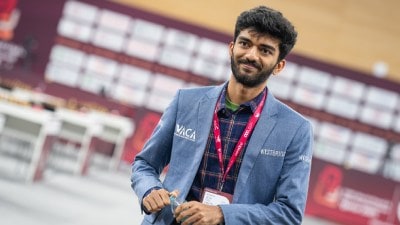Landings in Lahore
The Vajpayee-Sharif talks is the latest in a long series of high-level contacts between the two nations. In fact, 39 years ago Lahore had...

The Vajpayee-Sharif talks is the latest in a long series of high-level contacts between the two nations. In fact, 39 years ago Lahore had accorded a civic reception to Jawaharlal Nehru, much like the one that will be hosted in honour of Prime Minister Atal Behari Vajpayee tomorrow evening.
Nehru on that September 1960 trip to Pakistan, had first visited Karachi, to lay a wreath at the tomb of Mohammad Ali Jinnah. He had told Pakistanis at that juncture that he was 8220;happy to come to end an old controversy and bring to the people of Pakistan a message of friendship and hope of closer co-operation8221;.
After signing the Indus Water Treaty with President Ayub Khan on that occasion, he said: 8220;We are going to have many benefits out of these arrangements, but greater than the material advantages are the psychological and emotional benefits. It is a symbol of unity and co-operation between the two neighbouring countries.8221;
Twenty eight years later, it was the turn of Nehru8217;s grandson, Rajiv Gandhi, to make hispresence felt in Pakistan. The visit was show-cased as the interaction of two midnight8217;s children 8212; Rajiv and Benazir.
His December 1988 visit saw him sign three agreements in Islamabad. These were on nuclear facilities, cultural interaction and trade. In the agreement he entered into with Prime Minister Benazir Bhutto on that occasion, the two countries agreed to prohibit attack on each other8217;s nuclear installations. It also provided for exchange of data on locations of nuclear power and research reactors, fuel fabrications, uranium enrichment, isotopes separation and reprocessing facilities.
Vajpayee8217;s visit is the first by an Indian Prime Minister after that particular encounter.
Among the visits that Pakistan8217;s leaders have made to India, General Zia-ul-Haq8217;s cricket diplomacy is still remembered, especially that impromptu visit he made to Delhi on one occasion.
But clearly the Pakistani President Z.A. Bhutto trip for the Shimla Summit, held in the wake of the Bangladesh war in June 1972, wasarguably the most significant of these visits.
Indira Gandhi and Bhutto pledged themselves to make a new beginning in the relations between the two countries. As Bhutto put it: 8220;Believe me, we are interested in peace.8221; But even before he had left for Shimla, Bhutto 8212; in a broadcast over Radio Pakistan 8212; reiterated his commitment to uphold the right of 8220;self-determination for Jammu and Kashmir8221;. In Shimla, both countries agreed to 8220;put an end to the conflict and confrontation that had hitherto marred their relations8221; and 8220;settle their differences by peaceful means through bilateral negotiations8221;.
Interestingly, Vajpayee8217;s visit that he made as external affairs minister, is still remembered by the people here. In February 1978, Vajpayee held wide-ranging talks with General Zia-ul-Haq, chief martial law administrator, and handed over a letter from the then Prime Minister Morarji Desai.
The letter so impressed Gen. Zia that he later told Indian correspondents: 8220;You are lucky to have a man of hischaracter at the helm of affairs.8221; Ten years later, Pakistan bestowed its highest civilian award, Nishan-e-Pakistan on Desai.
- 01
- 02
- 03
- 04
- 05































